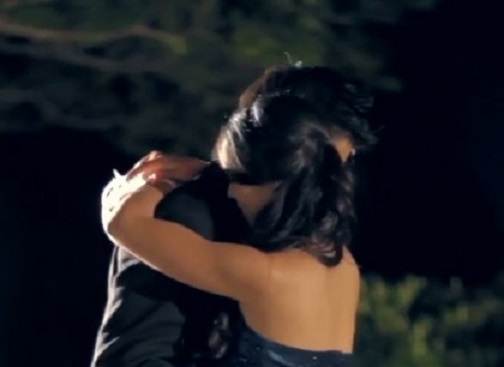Physicians don’t listen for shit, even when the patient is another physician.
I spent two hours in my own ER after doing a Cesarean section in a hot operating room. I was sweating like a pig and starting to get shaky, even though I’d had breakfast a few hours earlier. Thinking my blood sugar was plummeting, I wandered out to the nurse’s station and asked for a sugared pop (which tastes like pure syrup when one is used to diet).
Joy, a nurse with a very kind soul, thought I looked like crap and took my blood pressure. She got a panicked look in her eyes because my diastolic was 108. I’ve been on medication for about 12 years and my pressures are usually fairly normal at home. She took it again suggested I go down to the Emergency Room.
I said, “I feel fine. How about I go lay down for a few minutes?”
“So we can find you dead in the call room? How about the ER?”
I objected again so she grabbed the guy who’d done anesthesia for my Cesarean. He listened to my heart, looked at my blood pressure readings and said, “You really should go to the ER. I know the doc down there and I’ll give him a call.”
I relented. “OK, I’ll just mosey on down there.”
The nurses all said, “NO! We’ll get you a wheelchair and take you down. And if you don’t behave, we’ll call Denise to do a one-on-one with you.” Denise is another nurse and doesn’t take crap from anyone! I thought I’d be safer in the ER.
They wheeled me out of the unit, into the elevator and down a very long hallway to an ER bed. The ER nurse had me change into one of those idiotic gowns, then hooked me up to a monitor and a blood pressure cuff. She asked me the usual questions: Did I have any chest pain? Was I taking any medicine? Did I have a history of hypertension? Heart disease?
The ER doctor came and I repeated the same information, adding I was taking medication for my blood pressure; that I couldn’t take it at night with the drug that helped me pee because my blood pressure would plummet and I’d fall on my face; that I wasn’t diabetic but that I’d had a can of sugared pop shortly before coming down.
He listened to my heart and lungs, ordered an EKG, a chest X-ray, and blood work and told me he’d return when all the results were back. Standard ER protocol. I figured all the results would be normal.
The nurse started an IV and drew a few tubes of blood. Then someone from Imaging (the X-ray Department to anyone my age) snapped a chest x-ray. She apologized for the cassette being cold, but it felt really good on my back. I thought about the good old days when x-ray departments had 55 gallon drums of discarded films. Now everything is digital and viewed on a computer screen.
A Cardiopulmonary tech did an EKG, which read normal sinus rhythm—big surprise. Yes, the EKG machine reads the strip and makes comments. After that Dave from Respiratory Therapy came by with an albuterol solution because my lungs were a little tight.
“Have you ever done a nebulizer treatment,” he asked.
“Yeah. I have Symbicort—“
“That’s not a nebulizer med.”
Dammit, let me finish my sentence. “—albuterol inhaler and albuterol solution for my nebulizer.”
“So, you know how to use it?”
Yeah, it’s like taking hits off a bong but I’m not about to tell YOU that.
I laid on the gurney, pondering what my wife would say when I told her I’d been in the ER as a patient. I’d left my personal cell phone upstairs in my locker so I couldn’t call her, which was probably just as well.
The ER physician came in about 90 minutes later. All the results were normal, except for my non-fasting blood sugar of 174, which was not a big surprise after ingesting 39 grams of pure sugar. My blood pressure had returned to more normal levels. He told me to take it easy the rest of the day.
All was fine until I got the discharge paperwork which the following diagnoses:
- Acute generalized weakness
- Near syncope (fainting)
- Chronic diabetes
- Uncontrolled hypertension
WTF??? I didn’t have “generalized weakness” and I didn’t come anywhere near fainting. I’m not a chronic diabetic. I’ve checked my glucose levels frequently at home and if anything I’m prone to hypoglycemia if I don’t eat for several hours. (My record low was 54). My blood pressure came down to normal after lounging on the gurney for two hours. One makes a diagnosis of hypertension with several blood pressure readings over several days, not a couple of hours. If I had to guess, I think he assumed “fat Hispanic guy; must be diabetic, hypertensive, non-compliant and a walking heart attack waiting to happen.”
The next day I had the nurses at the office check my blood pressures, which were normal every day. I bought a glucometer and poked my fingers five to eight times a day, dutifully recording what I’d eaten and when along with my blood sugars, all in a nice Excel spreadsheet. My fasting blood sugars were just a bit high (101-103), but they normalized when I had a protein snack before bedtime.
Patients have complained to me that their doctors didn’t listen to them. Well, they are probably right more often than not, and for that I am truly sorry. And now I understand.
Photo Credit: Canstock Photo




